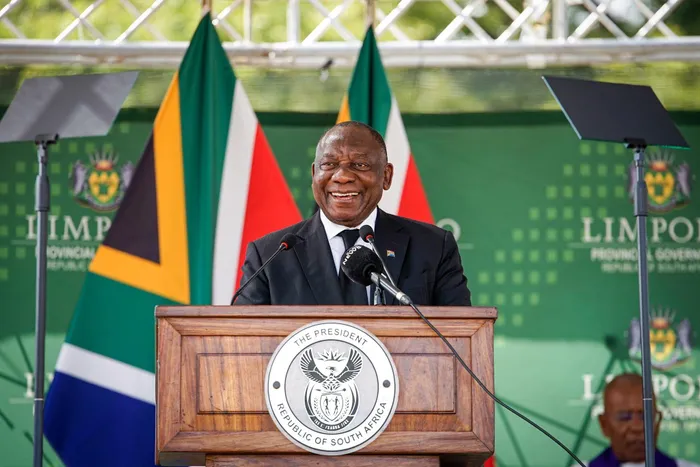
President Cyril Ramaphosa announced the National Dialogue, which aims to facilitate conversations among diverse South African stakeholders, including government, civil society, and political organisations. However, it has already drawn criticism regarding its high costs.
Image: ANC/X
The much-anticipated National Dialogue, set to kick off with a National Convention at the University of South Africa (Unisa) in Pretoria on 15 and 16 August 2025, is facing mounting challenges, with the withdrawal of several high-profile foundations raising questions about its future success.
The dialogue, which aims to facilitate conversations among diverse South African stakeholders, including government, civil society, and political organisations, has already drawn criticism regarding its high costs.
The reported R700 million price tag for the event has caused concern, despite the Presidency's efforts to manage expenses and reduce the financial burden on taxpayers.
In response to the growing criticism, the Presidency assured the public that the budgetary process for the National Dialogue adhered to the Public Finance Management Act (PFMA), and that efforts had been made to secure services and facilities at no cost.
Unisa, for instance, has offered to host the event for free, providing a range of services such as venues, catering, Wi-Fi, and printing of discussion materials.
Additionally, the government has secured further in-kind donations, including transportation, public viewing screens, and other logistical support, which the Presidency claims will significantly reduce the overall cost of the dialogue.
The National Economic Development and Labour Council (Nedlac) and the Presidency will also contribute from their existing budgets to cover communication and logistical expenses. However, despite these efforts, the National Dialogue faces a crisis of participation.
Key players in South Africa's civil society and political landscape have pulled out of the event. Prominent foundations, including the Steve Biko Foundation, the Thabo Mbeki Foundation, and the Desmond and Leah Tutu Legacy Foundation, have all announced their decision to withdraw.
These organisations have expressed concerns about the lack of adequate financing, the erosion of citizen leadership in the dialogue process, and the shift of control towards the government. According to the foundations, what began as a citizen-led initiative has gradually become dominated by government interests.
They argue that the event, which was originally intended to empower citizens, has lost its focus due to the government’s insistence on pushing forward with the convention, despite advice from the organising subcommittee chairs.
The foundations further criticised the lack of a proper platform for meaningful dialogue, as well as the misalignment within the organising committee and the short timelines involved in organising the event.
“In pushing forward for a convention on 15 August at the will of government officials and against the advice of the subcommittee chairs, we believe that a critical moment in which citizens should be leading will be undermined,” the statement from the foundations read.
While the dialogue is expected to draw leaders from various political parties and civil society organisations, the absence of these key foundations casts doubt on the true inclusiveness and effectiveness of the event.
The government remains adamant that the dialogue will proceed as planned, but the growing skepticism surrounding its execution may undermine its credibility and its intended outcomes.As the National Dialogue draws nearer, many are left wondering whether it will live up to its lofty goals or whether it will simply become a talkshop, disconnected from the real concerns of the South African people.